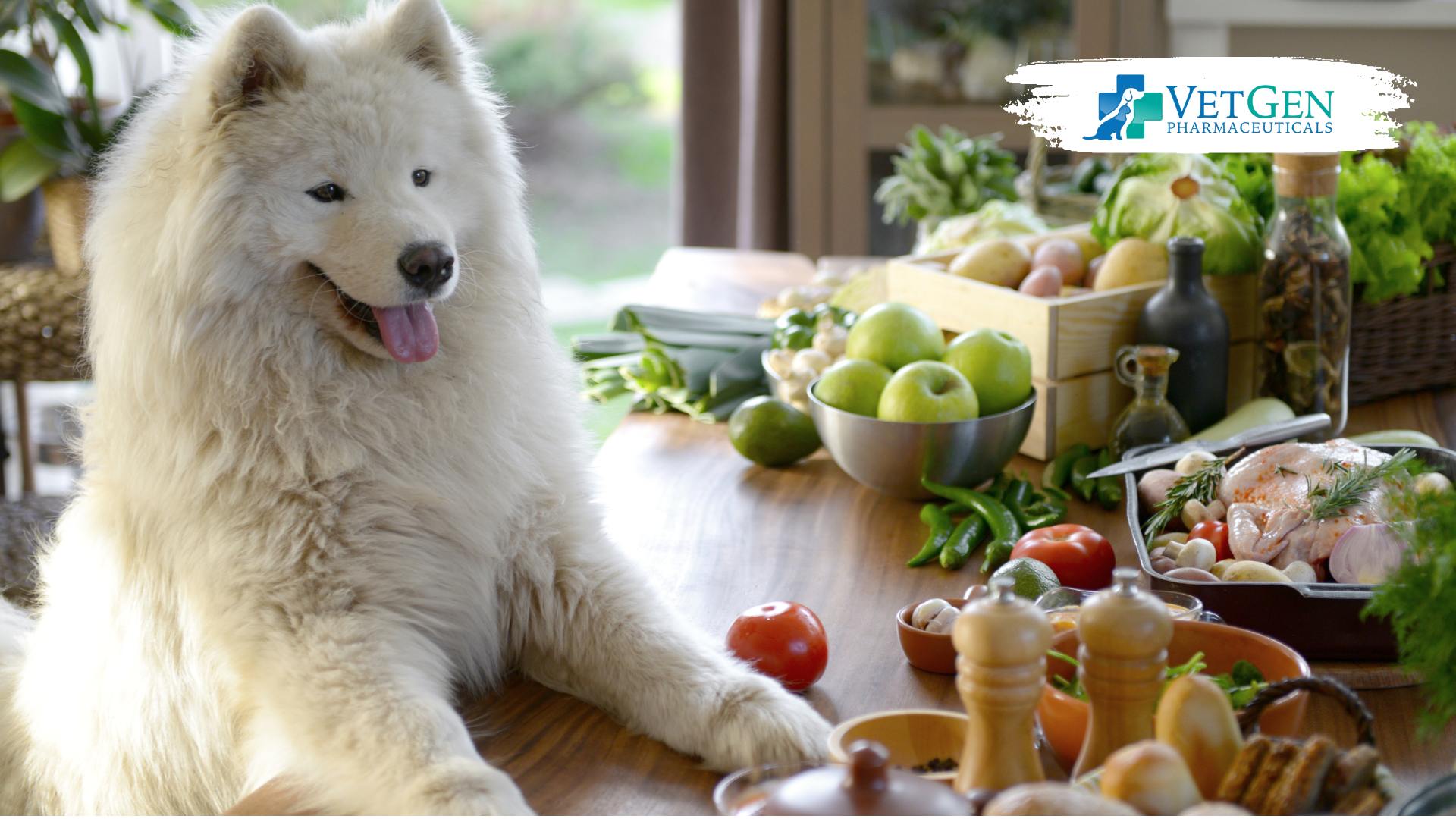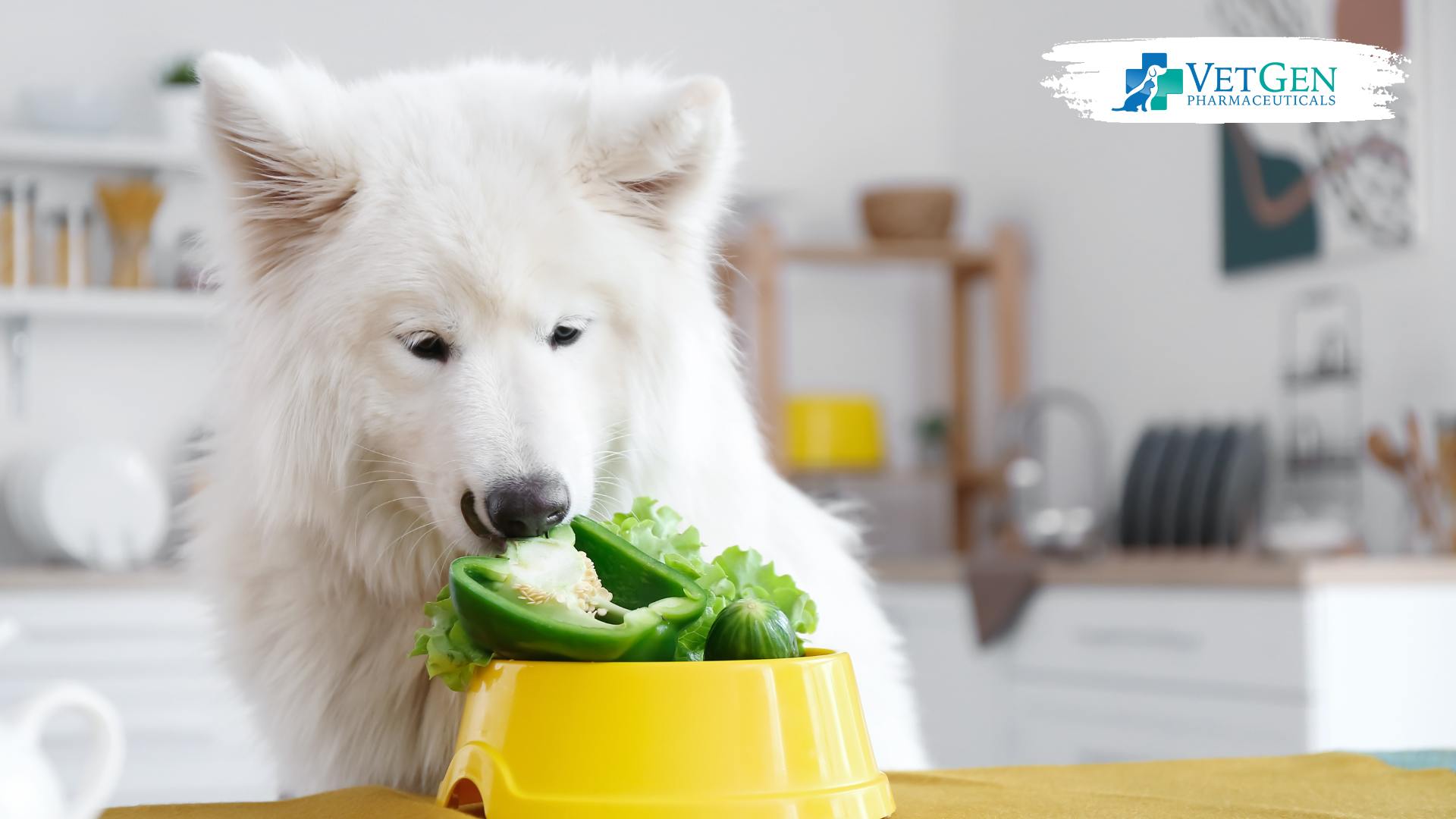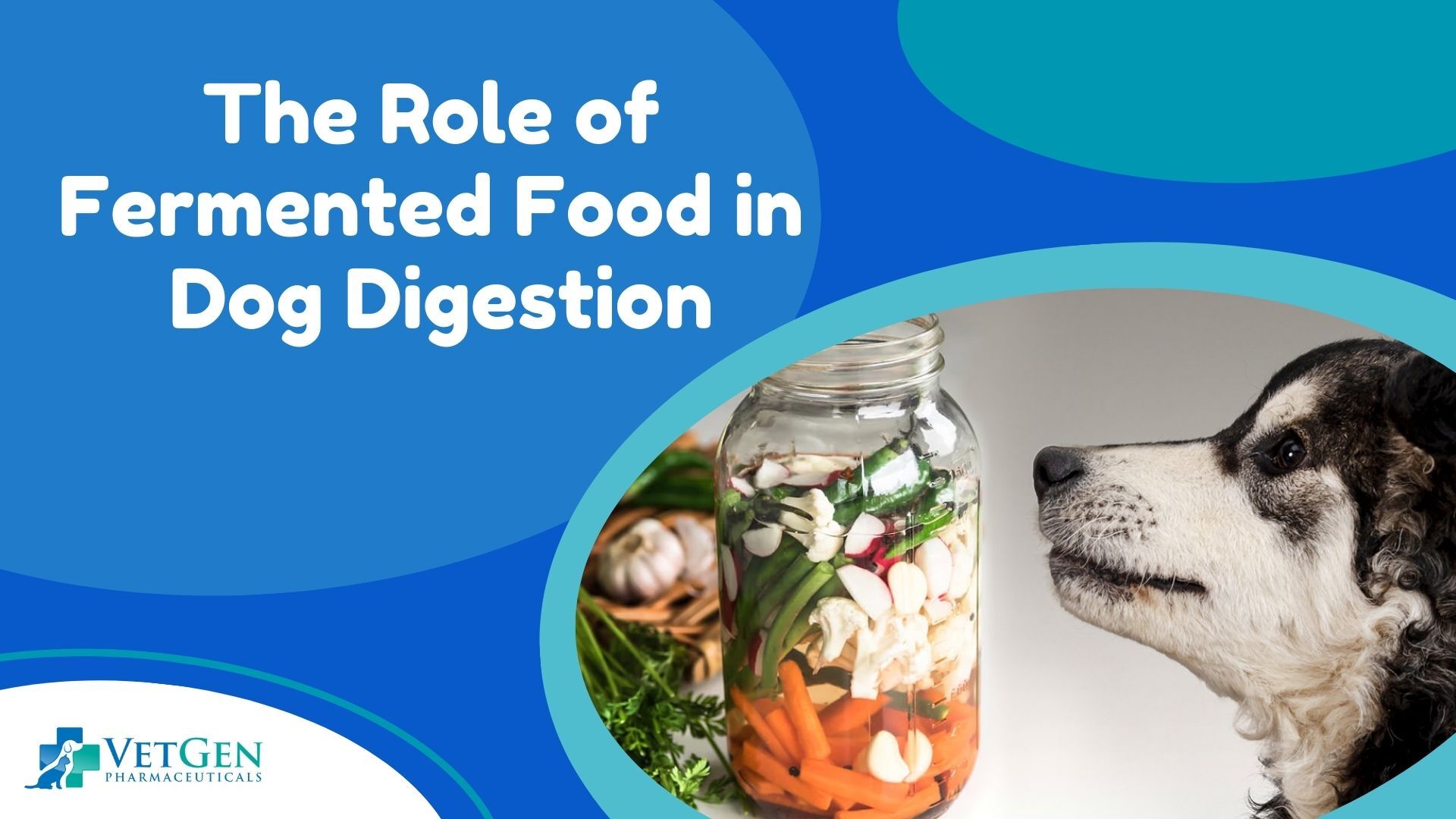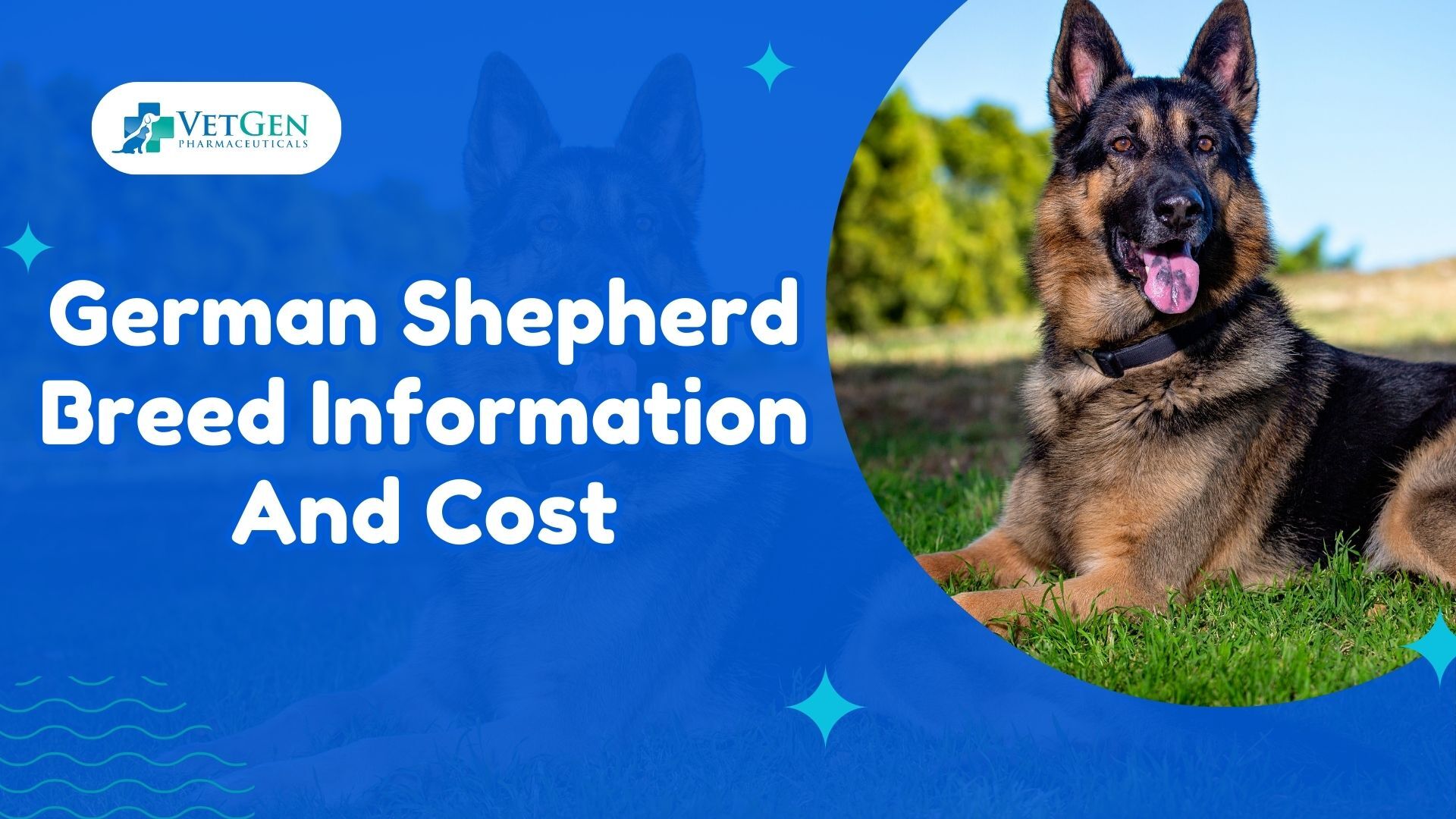Table of Contents
Knowing what is in a dog’s digestive tract constitutes knowing a dog’s general health. One of the culinary components being researched about dietary aspects of canines is fermented food in dog digestion. Fermentation is an ancient method of food preservation that gained much recognition in human nutrition mainly for the probiotic effect it produces, the same as applied to pets.
Let us explore, in this article, how fermented food could help a dog digest, the types of fermented food beneficial to canines, and why they should be given due weight in a balanced diet.
What is Fermented Food?
Fermented food is products that have undergone natural preservation involving bacteria, yeast, or other microorganisms. This process breaks down the sugars in food and converts them into organic acids, gases, or alcohol.
The result is a product that is high in probiotics; this is beneficial bacteria that can help with your gut. For dogs, fermented food in dog digestion contribute to a healthy dog microbiome by adding live cultures which improve the bacterium balance within their intestines.
Why Gut Health Matters for Dogs?
Just like in human beings, a dog’s gut has a very significant role in its overall health. The gut will break down the food, absorb nutrients, and eliminate waste. These activities are run efficiently by a healthy gut though they may lead to problems such as bloating, constipation, diarrhea, or even even worse health conditions like malnutrition and weakening of the immune system when the gut health goes sour.
Besides, a proper digestive system also impacts the energy level, skin condition, and coat status of a dog. Thus, including fermented food in a dog’s diet can greatly enhance the quality of life through smooth digestion without any gut disorder.
To know how antibiotics affect your dog’s gut health.

Benefits of Fermented Food in Canine Digestion
One of the key benefits of fermented food in dog digestion is the availability of probiotics in dogs. Probiotics have been known in the human gut to be living microorganisms that maintain the balance between good bacteria. This ensures better food digestion and nutrient absorption. A healthier balance of beneficial bacteria in a dog’s digestive system means that he has fewer digestive issues and a harder immune system.
1. Availability of Better Nutrients
The probiotics are added to the fermented food that enable the dogs to break down and absorb nutrients much better. Vitamins and minerals, especially essential ones like B vitamins, calcium, magnesium, and phosphorus, will be broken down and absorbed by the body if the gut flora is balanced from their regular food.

2. Enhanced Immune Function
A significant portion of a dog’s immune system is found in the gut. In addition to a well-functioning digestive system, fermented food also helps support overall immunoresistance. That is to say, a dog fights infections better, recovers from diseases quickly, and stays healthier.
3. Reduced Inflammation
Gut inflammation may also lead to chronic digestive issues and distress. Fermented foods have anti-inflammatory properties that can reduce the inflammation level of the dog’s gastrointestinal tract, which lessens bloating in dogs, gas, and stomach discomfort.
4. Digestive Enzyme Support
Fermented food can contribute to the production of digestive enzymes in dogs needed to break down food. Fermented food can be a useful supplement to providing deficient enzymes to dogs or for those who are fed processed food, thereby improving the digestion process.
Safe Fermented Food for Dogs
Not all fermented foods are acceptable for pets. It is imperative to pay attention to which fermented foods are safe and well-tolerated by dogs. Some safe and beneficial types of fermented food for dog digestion include:
1. Fermented Vegetables
Other vegetables, such as carrots, cabbage, and beets, can be fermented and added to a small amount of the diet. As such, these contribute much to probiotics and fiber supporting regular bowel movement and healthiness of the gut flora.

2. Kefir
Kefir is a fermented milk product rich in probiotics. Provided that the dogs are not lactose-intolerant, kefir is safe to be given to them. Kefir contains a range of probiotic strains that help in gut health, improve digestion, and build up the immune system.
3. Yogurt
Plain, unsweetened yogurt is yet another rich source of probiotics for your dog. It can be fed to your dog in small amounts or added to their regular food. Make sure the yogurt fed is a live active culture, low on sugars, and does not contain xylitol, an artificial sweetener that is deadly poison for your pet.
4. Fermented Fish
Minimal amounts of fermented fish, such as sardines, are also perfect for dogs. This kind of food is loaded with omega-3 fatty acids that are excellent for the health of one’s skin, coat, and joints, while simultaneously giving one probiotics to help maintain healthy digestion.
5. Fermented Goat's Milk
Another great alternative for a dog who cannot tolerate cow’s milk is fermented goat’s milk. It is very rich in probiotics and gentle on a dog’s digestive system, making it stand out as a good gut health alternative.
Feeding Fermented Food to Your Dog
Introduce fermented food into your dog’s diet slowly. Just give a little bit to your dog and monitor his condition. Fermented food are pretty safe but sometimes cause sensitivities or digestive reactions if exposed quickly.
On the other hand, consult a vet before such drastic changes in a dog’s diet. Some dogs may have pre-existing health conditions or have specific requirements; a vet will help determine exactly how much and what type of fermented food a given dog can take, depending on size, breed, and health.
The Future of Fermented Food in Dog Nutrition
In the wake of pet owners waking up to the advantages of holistic and natural diets, the inclusion of fermented food in commercial dog food is expected to grow. Companies already introduced probiotic-rich ingredients in their formulations as part of their recognition of this new trend toward healthier canine health.
Conclusion
Introduce fermented food in dog digestion; the intake of this food will be highly effective and natural when supporting the gut, enhancing nutrient absorption, and boosting immune function. From fermented vegetables to kefir and yogurt, they have various digestive benefits in dogs. However, with any dietary change, there is a gradual introduction with a consultation with the veterinarian to ensure that they are providing your dog’s nutritional needs.
VetGen Pharmaceuticals offers trusted supplements and probiotics to help dog owners improve their dog’s gut health. Adding fermented food to these supplements will ensure a dog is given the best care for its digestive health.
Frequently Asked Questions
1. Can all dogs eat fermented food?
Fermented food can be safely consumed in moderation by most dogs. Still, one should introduce them gradually and only after consulting a veterinarian, especially if the dog is prone to having a sensitive stomach or has any other medical conditions.
2. How often can a dog eat fermented food?
This depends on the health and diet requirements of your dog. You can start with small portions once or twice a week and monitor their response. Increase the number of times for feeding according to their tolerance.








